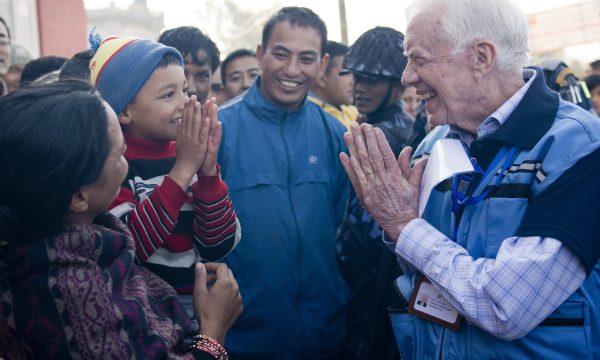Remastered “Stand by Me” Restored By: CrisMate
The Doors’ debut album; the magical essence of New Orleans jazz; Ben E. King’s rhythm and blues classic “Stand by Me,” which made history as one of the most broadcast songs of the 20th century; and the “Lovin’ Feelin’” of the Righteous Brothers are among the recordings recently selected for induction into the Library of Congress National Recording Registry.
25 new sound recordings will be added to the registry that have been recognized for their cultural, artistic and/or historical significance to American society and the nation’s audio legacy.
The selections named to the 2014 registry feature a rich and varied array of spoken-word and musical recordings—representing nearly every musical category—spanning the years 1890-1999. Among the 2014 selections are “Joan Baez,” the artist’s first solo album; Tennessee Ernie Ford’s 1955 “Sixteen Tons”; Ben E. King’s rhythm and blues classic “Stand by Me,” which made history as one of the most broadcast songs of the 20th century; Sly and the Family Stone’s 1969 “Stand!,” one of the most successful albums of the 1960s; jazz saxophonist Gerry Mulligan’s 1953 live concert rendition of “My Funny Valentine”; The Swan Silvertones’ 1959 version of “Mary Don’t You Weep”; the original-cast recording of Cole Porter’s “Kiss Me, Kate”; Joan Tower’s celebration of women in music, “Fanfares for the Uncommon Woman”; 20 classic songs compiled in the 1995 “Sesame Street: All-Time Platinum Favorites”; and one of the landmark records of the 1990s, Radiohead’s “OK Computer.”
Two debut albums that made the list are the 1967 “The Doors,” which features some of the group’s most iconic songs, and “The Miseducation of Lauryn Hill,” the breakthrough recording that fuses soul, rhythm and blues, rap and reggae.
Spoken-word recordings on the list include Steve Martin’s second comedy album “A Wild and Crazy Guy”; an episode of the radio series “Suspense,” featuring Agnes Moorehead’s first broadcast of “Sorry, Wrong Number”; radio coverage of President Franklin D. Roosevelt’s funeral, including announcer Arthur Godfrey’s emotional broadcast; and Charles Laughton’s non-musical theatrical production, “John Brown’s Body,” with performances by such notable actors as Tyrone Power and Raymond A. Massey.
The 2014 registry also features a collection of 600 wax-cylinder recordings from the turn of the 20th century and rare recordings from the 1893 Chicago World’s Fair demonstrating “world music” from numerous countries around the globe.
Nominations were gathered through online submissions from the public and from the NRPB, which is comprised of leaders in the fields of music, recorded sound and preservation. The Library is currently accepting nominations for the next registry at the NRPB website.
As part of its congressional mandate, the Library is identifying and preserving the best existing versions of each recording on the registry. These recordings will be housed in the Library’s Packard Campus for Audio Visual Conservation in Culpeper, Virginia, a state-of-the-art facility that was made possible through the generosity of David Woodley Packard and the Packard Humanities Institute, with benefaction from the U.S. Congress. The Packard Campus is home to more than 7 million collection items, including nearly 3 million sound recordings.
Founded in 1800, the Library of Congress is the nation’s oldest federal cultural institution. The Library seeks to spark imagination and creativity and to further human understanding and wisdom by providing access to knowledge through its magnificent collections, programs and exhibitions. Many of the Library’s rich resources can be accessed through its website at www.loc.gov.













